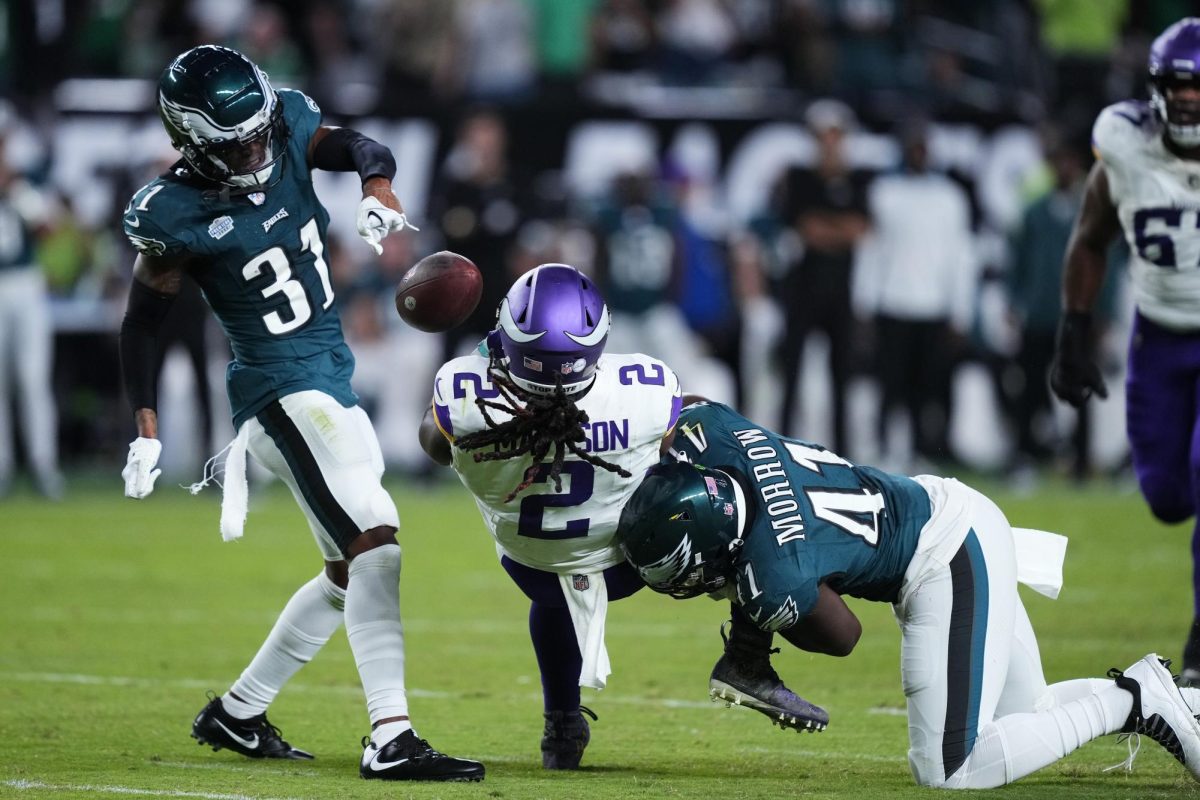On Thursday, Sept. 14, The Pitt News Editorial Board worked away and the population of Philadelphia filled the seats of the Lincoln Financial Stadium. At the same time, Minnesota Vikings tailback Alexander Mattison received a slew of disgustingly racist messages and comments to his personal Instagram page. In an hour, Mattison received over 60 racially motivated messages and, after discussing with teammate C.J. Ham, he brought the DMs to the light of the internet. He had enough — he no longer wanted these individuals to get away with their harmful messages of hate.
Mattison said, “None of this was for attention. None of this was for pity. It was to bring awareness and bring to light something that happens way too much.”
An alarming amount of news articles have made the headlines about football fans hurling attacks and racist remarks at the players. Between the messages to Mattison and the University of Alabama fans’ racist and homophobic comments to Texas football players, we are beginning to see conversations on race and football spark back up.
We have just come off of a high from the Super Bowl LVII where it was the first time two Black quarterbacks faced off. We saw other improvements in the NFL where players were allowed to put quotes on their helmets, “End Racism” was painted in the turf and the Black national anthem was performed before kickoff. But is the NFL doing enough? Is it solving the problem of racism that runs through its ranks and through its fanbase? It was only in 2021 when the NFL discontinued the use of race norming — the practice of using a lower cognitive baseline when assessing Black men during concussion tests. 70% of NFL players are Black.
But behind closed doors, it may be a different story. Longtime NFL Network reporter Jim Trotter has quit and sued the organization on the accusation of racial discrimination. Trotter has made many different claims against the National Football League, including their failure to address their lack of racial integration, their discrimination against Colin Kaepernick and accusations against NFL higher ups for bigoted commentary. Most notably, after hearing the comment secondhand by a colleague, Trotter accused Buffalo Bills owner Terry Pegula of saying “If the Black players don’t like it here, they should go back to Africa.” Pegula has denied this accusation.
The NFL has a long history with supporting, as well as dismantling, the Black community. It has done a complete 180 from blacklisting Kaepernick in 2016 to performing “Lift Every Voice and Sing” before kickoff. But, between the uprising of racist attacks made by fans to the accusations made against the executives and coaches within the NFL, the reality of racism in football has made itself known again.
Football leagues must be less performative. They must speak out and inspire real change within their rankings and among their fanbases. The Minnesota Vikings’ statement in support of Mattison is a prime example, but they and others can always do more. What appears like a strong stance against racism has proved itself to be a cover up to its real harm and inaction. How could you want to “end racism” without effectively speaking up for those that make up the majority of your rosters?


